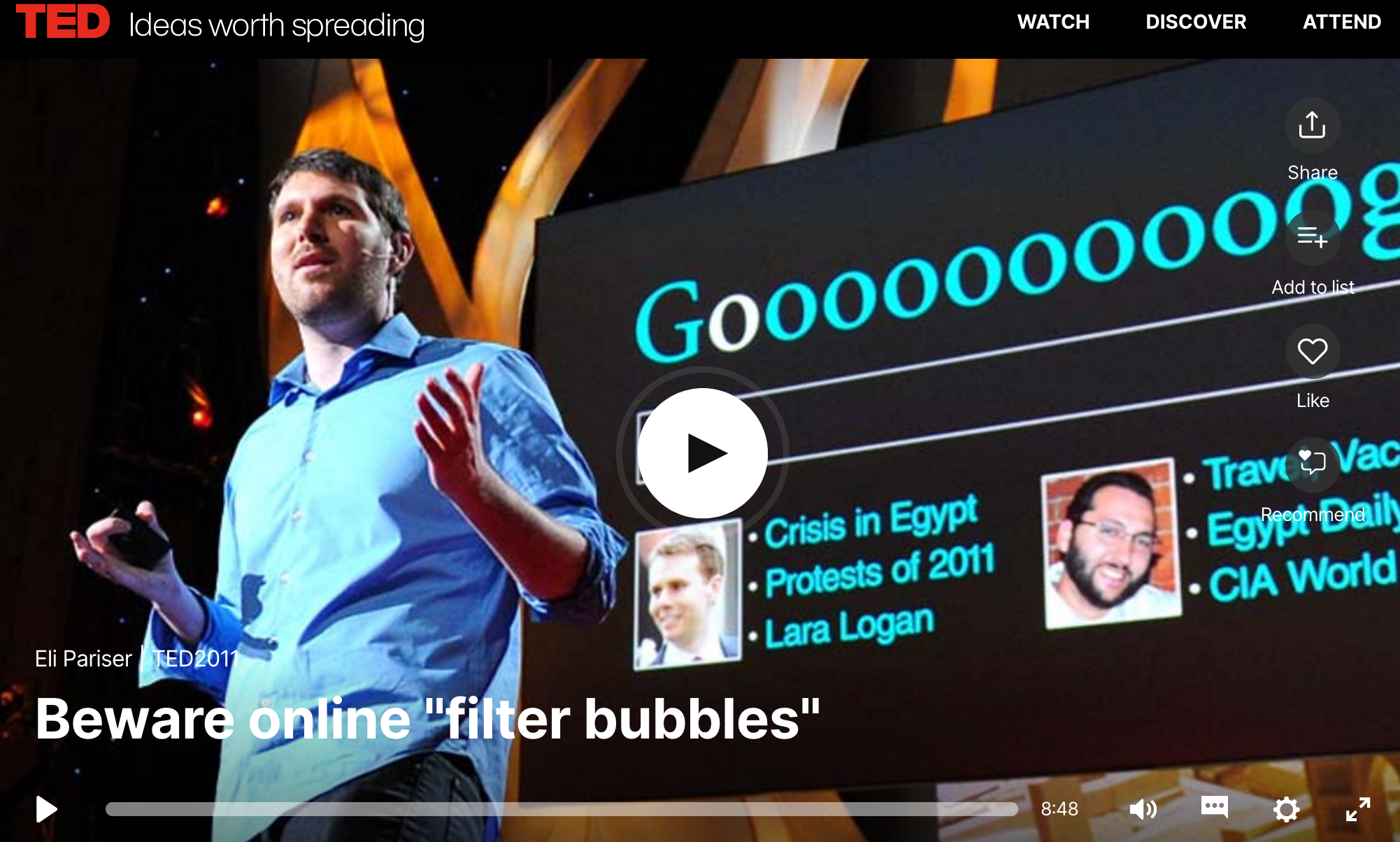Eli Pariser: Beware online "filter bubbles" | Video on TED.com
Internet vendors use cookies and behavior tracking to develop sophisticated and refined user profiles. This data is subsequently used to provide users with ads and products that we will purchase, based on our previous behavior or the behavior of people “like” us.

Internet vendors use cookies and behavior tracking to develop sophisticated and refined user profiles. This data is subsequently used to provide users with ads and products that we will purchase, based on our previous behavior or the behavior of people “like” us.
But isn’t the internet all about finding things you don’t already know about or want (to buy)? Isn’t is, in addition to a place where we buy things, also a place where we learn things?
In the brief video below, Eli Pariser describes the phenomenon known as “filter bubbles.” Filter bubbles proposes that we exist within specific “filters” that internet vendors have crafted to best match our user profile (which they have developed for us or bought from someone else who did) with products or services that others similar to our profile would want.
The sum of this process is that we end up being served products, and even content that we already know about or want. How, in that process, is there room for us to learn new things? How would be exposed to political or religious or other viewpoints that differ from our own?
The internet has a lot of baggage hitched to its bumper. Some of that is that the internet should be freely accessible to all, that the internet should be completely anonymous, and that the internet should be a great learning tool. But in the reality of developed Western cultures (at least), non of these things are true. It is, instead, a titanic marketplace and we, the users, are the products being bought and sold in exchange for (on one hand) content we consume and, on the other hand, cold hard cash.
Are consumers getting a good deal on that?
